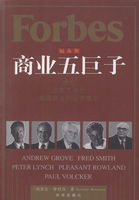In the second place, we shall limit our investigations to those principles which relate to the categories.For as to the principles of transcendental aesthetic, according to which space and time are the conditions of the possibility of things as phenomena, as also the restriction of these principles, namely, that they cannot be applied to objects as things in themselves- these, of course, do not fall within the scope of our present inquiry.In like manner, the principles of mathematical science form no part of this system, because they are all drawn from intuition, and not from the pure conception of the understanding.The possibility of these principles, however, will necessarily be considered here, inasmuch as they are synthetical judgements a priori, not indeed for the purpose of proving their accuracy and apodeictic certainty, which is unnecessary, but merely to render conceivable and deduce the possibility of such evident a priori cognitions.
But we shall have also to speak of the principle of analytical judgements, in opposition to synthetical judgements, which is the proper subject of our inquiries, because this very opposition will free the theory of the latter from all ambiguity, and place it clearly before our eyes in its true nature.
SYSTEM OF THE PRINCIPLES OF THE PURE UNDERSTANDING.
SECTION I.Of the Supreme Principle of all Analytical Judgements.
Whatever may be the content of our cognition, and in whatever manner our cognition may be related to its object, the universal, although only negative conditions of all our judgements is that they do not contradict themselves; otherwise these judgements are in themselves (even without respect to the object) nothing.But although there may exist no contradiction in our judgement, it may nevertheless connect conceptions in such a manner that they do not correspond to the object, or without any grounds either a priori or a posteriori for arriving at such a judgement, and thus, without being self-contradictory, a judgement may nevertheless be either false or groundless.
Now, the proposition: "No subject can have a predicate that contradicts it," is called the principle of contradiction, and is a universal but purely negative criterion of all truth.But it belongs to logic alone, because it is valid of cognitions, merely as cognitions and without respect to their content, and declares that the contradiction entirely nullifies them.We can also, however, make a positive use of this principle, that is, not merely to banish falsehood and error (in so far as it rests upon contradiction), but also for the cognition of truth.For if the judgement is analytical, be it affirmative or negative, its truth must always be recognizable by means of the principle of contradiction.For the contrary of that which lies and is cogitated as conception in the cognition of the object will be always properly negatived, but the conception itself must always be affirmed of the object, inasmuch as the contrary thereof would be in contradiction to the object.
We must therefore hold the principle of contradiction to be the universal and fully sufficient Principle of all analytical cognition.But as a sufficient criterion of truth, it has no further utility or authority.For the fact that no cognition can be at variance with this principle without nullifying itself, constitutes this principle the sine qua non, but not the determining ground of the truth of our cognition.As our business at present is properly with the synthetical part of our knowledge only, we shall always be on our guard not to transgress this inviolable principle; but at the same time not to expect from it any direct assistance in the establishment of the truth of any synthetical proposition.
There exists, however, a formula of this celebrated principle- a principle merely formal and entirely without content- which contains a synthesis that has been inadvertently and quite unnecessarily mixed up with it.It is this: "It is impossible for a thing to be and not to be at the same time." Not to mention the superfluousness of the addition of the word impossible to indicate the apodeictic certainty, which ought to be self-evident from the proposition itself, the proposition is affected by the condition of time, and as it were says: "A thing = A, which is something = B, cannot at the same time be non-B." But both, B as well as non-B, may quite well exist in succession.For example, a man who is young cannot at the same time be old; but the same man can very well be at one time young, and at another not young, that is, old.Now the principle of contradiction as a merely logical proposition must not by any means limit its application merely to relations of time, and consequently a formula like the preceding is quite foreign to its true purpose.The misunderstanding arises in this way.We first of all separate a predicate of a thing from the conception of the thing, and afterwards connect with this predicate its opposite, and hence do not establish any contradiction with the subject, but only with its predicate, which has been conjoined with the subject synthetically-a contradiction, moreover, which obtains only when the first and second predicate are affirmed in the same time.If I say: "A man who is ignorant is not learned," the condition "at the same time" must be added, for he who is at one time ignorant, may at another be learned.But if I say: "No ignorant man is a learned man," the proposition is analytical, because the characteristic ignorance is now a constituent part of the conception of the subject; and in this case the negative proposition is evident immediately from the proposition of contradiction, without the necessity of adding the condition "the same time." This is the reason why I have altered the formula of this principle- an alteration which shows very clearly the nature of an analytical proposition.
SECTION II.Of the Supreme Principle of all Synthetical Judgements.















